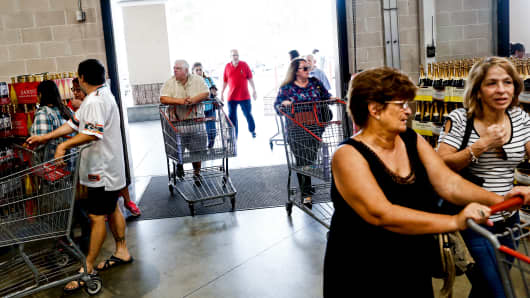Consumer sentiment gained more than expected in early February as U.S. spending confidence recovered after the end of the longest government shutdown in history.
The University of Michigan consumer sentiment index rose to 95.5 this month from 91.2 in January, preliminary data showed. Economists polled by Refinitiv expected the index to rise to 93.
"The early February gains reflect the end of the partial government shutdown as well as a more fundamental shift in consumer expectations due to the Fed's pause in raising interest rates," said Richard Curtin, chief economist for the Surveys of Consumers.
"The lingering impact of the shutdown was responsible for some of the negative economic evaluations, and, at the time that these interviews were conducted, uncertainty about whether a second shutdown would occur continued to have a slight depressing impact on confidence," Curtin added.
President Donald Trump temporarily ended the record-long government shutdown on Jan.25, resolving the grueling 35-day closure. On Thursday, Congress passed legislation to avoid another government shutdown, and the president plans to sign the proposal and declare a national emergency in an attempt to fund the wall.
"The assessment of current conditions was the second lowest since 2016, though the expectations read was significantly improved, back to levels seen in 2018. In the details, consistent with the bounce in sentiment, more respondents suggested that it was a good time to buy a major household item/vehicle/house," said Jon Jill, fixed income strategist at BMO Capital Markets.
Optimism toward a government funding resolution, along with China trade hopes, boosted the stock market with the S&P 500 rising more than 2 percent this month so far.
The consumer sentiment data indicate that personal consumption expenditures will remain the strongest sector in the national economy in 2019, Curtin pointed out.



